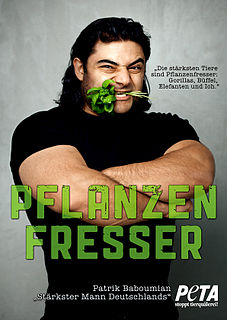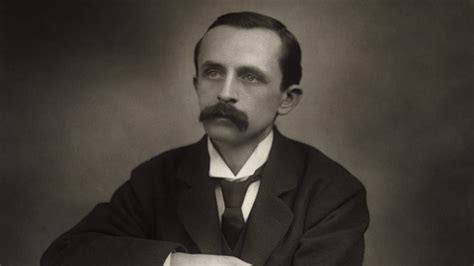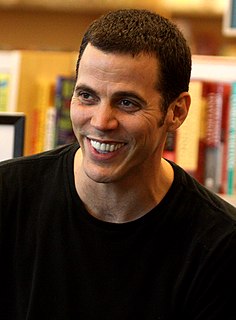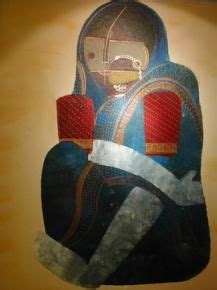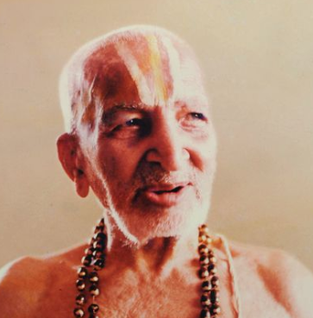A Quote by Sharon Gannon
In fact, we would know ourselves that we are not meant to be meat eaters, and we would not have allowed ourselves to become conditioned to meat eating in the first place, if the effects of meat eating were felt right away. But since heart disease, cancer, diabetes, osteoporosis, etc. usually take many years to develop, we are able to separate them from their cause (or contributing factors) and go on happily eating an animal-based diet.
Quote Topics
Able
Allowed
Animal
Away
Based
Become
Cancer
Cause
Conditioned
Contributing
Develop
Diabetes
Diet
Disease
Eating
Effects
Etc
Fact
Factors
Felt
First
First Place
Go
Happily
Heart
Heart Disease
In Fact
Know
Many
Meant
Meant To Be
Meat
Meat Eating
Osteoporosis
Ourselves
Place
Right
Right Away
Separate
Since
Take
Them
Were
Would
Years
Related Quotes
To avoid causing terror to living beings, let the disciple refrain from eating meat... the food of the wise is that which is consumed by the sadhus [holymen]; it does not consist of meat... There may be some foolish people in the future who will say that I permitted meat-eating and that I partook of meat myself, but... meat-eating I have not permitted to anyone, I do not permit, I will not permit meat-eating in any form, in any manner and in any place; it is unconditionally prohibited for all.
We believe in the Three Rs - reducing the consumption of meat and other animal-based foods; refining the diet by eating products only from methods of production, transport, and slaughter that minimize pain and distress; and replacing meat and other animal-based foods in the diet with plant-based foods.
The eating of meat was unknown up to the big flood, but since the flood they have put the strings and stinking juices of animal meat into our mouths, just as they threw in front of the grumbling sensual people in the desert. Jesus Christ, who appeared when the time had been fulfilled, has again joined the end with the beginning, so that it is no longer allowed for us to eat animal meat.
While self-interest arising from the enjoyment of meat eating is obviously one reason for its entrenchment, and inertia another, a process of language usage engulfs discussions about meat by constructing the discourse in such a way that these issues need never be addressed. Language distances us from the reality of meat eating, thus reinforcing the symbolic meaning of meat eating, a symbolic meaning that is intrinsically patriarchal and male-oriented. Meat becomes a symbol for what is not seen but is always there--patriarchal control of animals and of language.
In my opinion, if most urban meat-eaters were to visit an industrial broiler house, to se how the birds are raised, and could see the birds being "harvested" and then being "processed" in a poultry processing plant, they would not be impressed and some, perhaps many of them would swear off eating chicken and perhaps all meat.
If you like eating meat but want to eat ethically, this is the book for you. From the hard-headed, clear-eyed, and sympathetic perspective of butchers who care deeply about the animals whose parts they sell, the customers who buy their meats, and the pleasures of eating, this book has much to teach. It’s an instant classic, making it clear why meat is part of the food revolution. I see it as the new Bible of meat aficionados and worth reading by all food lovers, meat-eating and not.
We stopped eating meat many years ago. During the course of a Sunday lunch we happened to look out of the kitchen window at our young lambs playing happily in the fields. Glancing down at our plates, we suddenly realized that we were eating the leg of an animal who had until recently been playing in a field herself. We looked at each other and said, "Wait a minute, we love these sheep-they're such gentle creatures. So why are we eating them?" It was the last time we ever did.
Eating meat and dairy products is the SAD (Standard American Diet) diet. The SAD diet can only make you sad. It causes heart disease, cancer, diabetes and makes you fat. Raising animals for food destroys the environment... And those animals are not happy. They are enslaved and live humiliating, fearful lives of abuse and tremendous suffering. Veganism turns sadness into joy.
Some meat eaters defend meat eating by pointing out that it is natural: in the wild, animals eat one another. The animals that end up on our breakfast, lunch, and dinner plates, however, aren't those who normally eat other animals. The animals we exploit for food are not the lions and tigers and bears of the world. For the most part, we eat the gentle vegan animals. However, on today's farms, we actually force them to become meat eaters by making them eat feed containing the rendered remains of other animals, which they would never eat in the wild.





